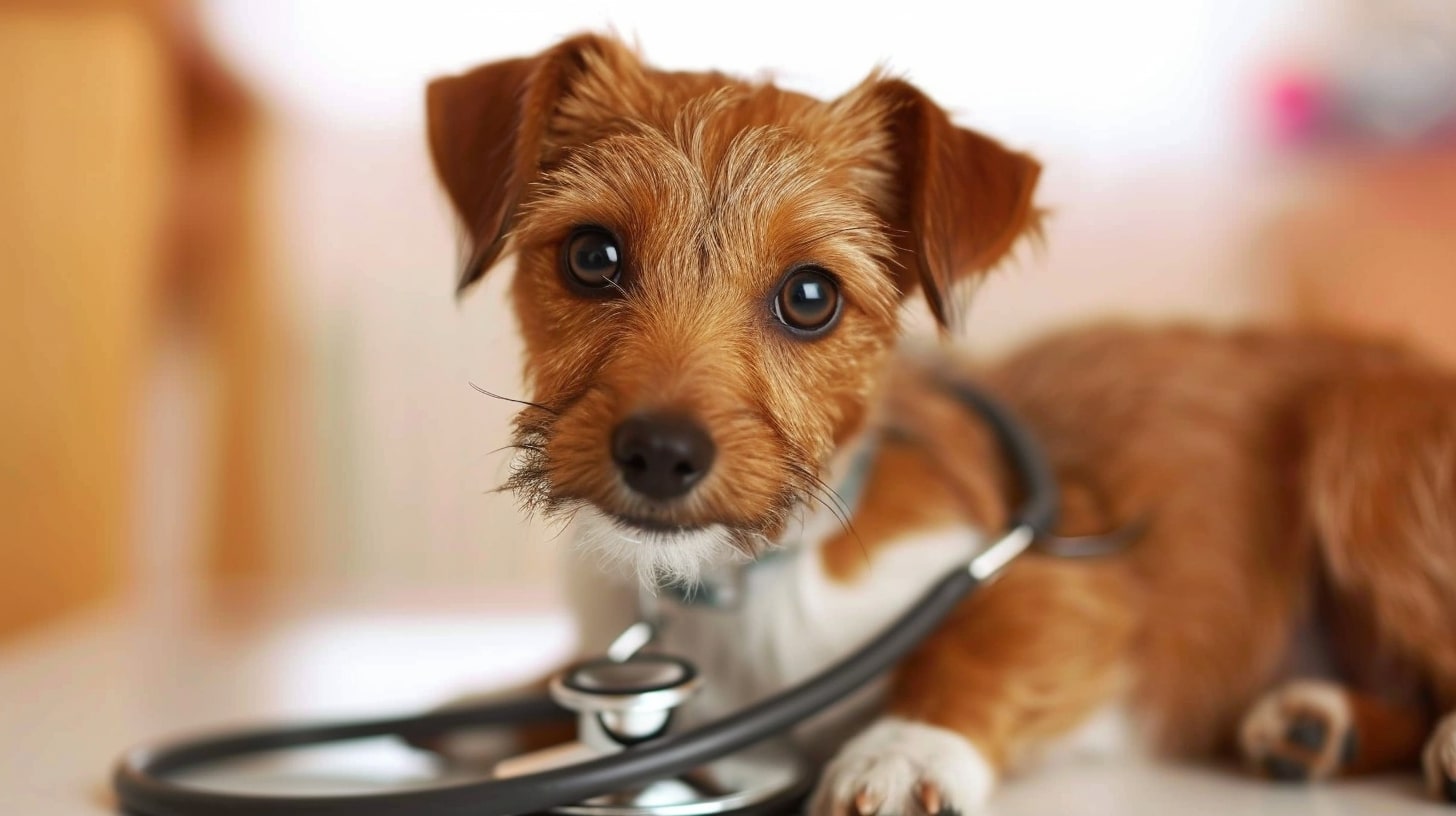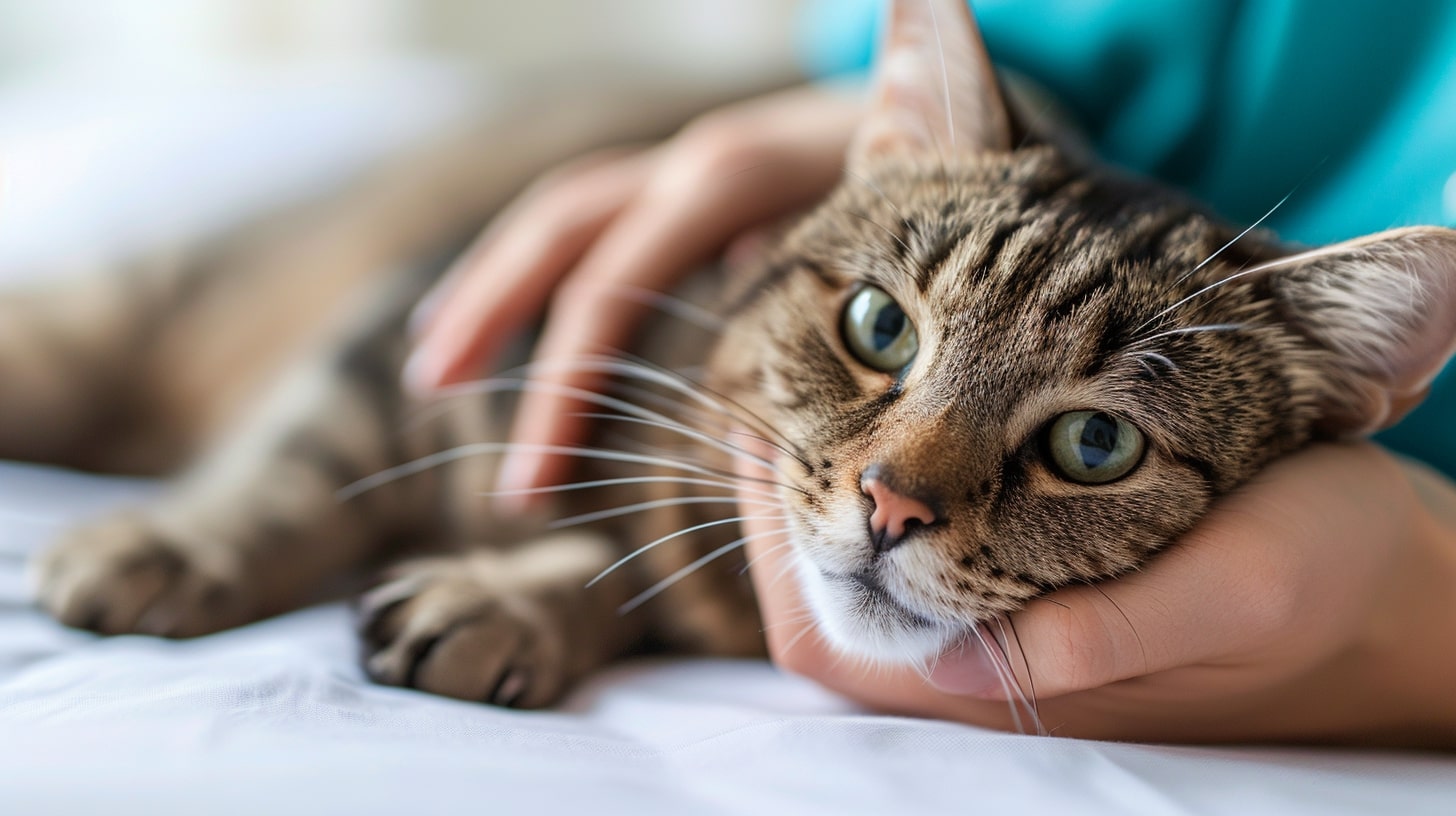
Why Regular Vet Checkups are Crucial for Your Pet’s Health
Ensuring the health and well-being of our pets is a responsibility that pet owners take seriously. Regular veterinary checkups play a pivotal role in this endeavour. By taking your healthy animal for routine exams, your veterinarian can spot problems before they become serious, offering peace of mind for pet owners. These checkups are not just about vaccinations or dealing with illness; they are comprehensive assessments that can detect early signs of health issues such as cancers and parasites.
Fun Fact: Did you know that dogs and cats can hide symptoms of illness? Regular vet visits can help uncover these hidden ailments!
During these visits, veterinarians conduct thorough examinations, which can include blood tests, dental checks, and weight monitoring, to ensure that pets are in top condition. This proactive approach to pet health care helps in identifying and addressing potential health problems before they escalate, thus saving on costly treatments down the line.
Key takeaway: Regular vet checkups are vital for early detection and prevention of health issues, ensuring a longer, healthier life for your pet.
The Benefits of Regular Vet Visits
Regular veterinary checkups are a cornerstone of preventative pet health care. These visits allow veterinarians to conduct thorough physical examinations and assess the general health of pets. Early detection of health issues can lead to more effective and less costly treatments. Vaccinations and preventive care administered during these visits play a crucial role in protecting pets from various diseases and infections.
Tip: A pet’s dental health is just as important as its physical health. Regular dental checkups can prevent diseases related to poor oral hygiene!
Dental health is another critical aspect addressed during routine checkups. Poor dental health can lead to significant issues, including heart disease. Regular dental checks and cleanings can prevent such complications. Furthermore, vets provide invaluable advice on weight management and nutritional needs, ensuring pets maintain a healthy lifestyle.
Key takeaway: Preventive care through regular vet visits is essential in safeguarding your pet’s health and avoiding high treatment costs in the future.
These visits also offer an opportunity for pet owners to discuss any concerns or observations about their pet’s behaviour or health. This open communication is vital for the early detection of potential issues and for providing the best care possible.
Understanding Pet Health: Common Issues and Symptoms

Recognizing the signs of illness in pets is critical for their well-being. Common health problems in dogs and cats can range from minor issues to serious diseases. Early detection of symptoms like changes in appetite, behaviour, or bathroom habits is crucial. Knowing what to look for can help pet owners seek veterinary care promptly.
Age-related health concerns are also a significant focus during vet visits. As pets age, they are prone to ailments such as arthritis, vision loss, and cognitive decline. Regular checkups help monitor these age-related changes and provide necessary interventions. These visits are crucial for maintaining the quality of life of senior pets.
Key takeaway: Early recognition of changes in your pet’s behaviour or health can be a lifesaver. Regular vet visits help in early detection and treatment of common health issues.
Understanding and addressing behavioural issues is another aspect of pet health. Changes in behaviour can often signal underlying health problems. Veterinarians can provide guidance on managing these issues, ensuring both the physical and mental well-being of pets.
How Often Should Your Pet Visit the Vet?
The frequency of veterinary visits largely depends on the age, breed, and health status of the pet. Generally, young pets require more frequent checkups, while adult pets might need annual visits. Senior pets, or those with chronic health issues, might require more frequent monitoring.
Did you know: Some dog breeds are more prone to hip dysplasia? Regular vet visits can help monitor and manage such breed-specific conditions.
For puppies and kittens, initial months are critical for vaccinations, deworming, and health monitoring. As pets grow, the focus shifts to preventative care and early detection of any developing health issues. Special considerations are needed for breeds with specific health risks. Certain breeds are predisposed to particular health problems, and regular checkups can help in early detection and management of these breed-specific issues.
Key takeaway: The frequency of vet visits should be tailored to each pet’s specific needs, considering their age, breed, and overall health status.
Senior pets, typically over the age of 7, may require bi-annual visits due to the increased risk of health issues. These visits are vital for maintaining the quality of life in older pets, addressing any age-related issues promptly.
Preparing for a Vet Visit: What You Need to Know

Being well-prepared for a vet visit is crucial for both the pet and the owner. Preparation includes gathering any necessary paperwork, such as previous medical records, and making a list of questions or concerns. It’s important to bring any information regarding your pet’s diet, exercise, behaviour, lifestyle, and any recent changes.
Tip: A well-prepared list of questions can turn a routine vet visit into a personalized health session for your pet!
Knowing what questions to ask your veterinarian can significantly enhance the effectiveness of the visit. Inquire about your pet’s overall health, recommendations for preventive measures, and any specific concerns you may have. This dialogue is invaluable in establishing a comprehensive care plan for your pet.
Key takeaway: Proper preparation for a vet visit ensures a more productive and efficient checkup, helping your veterinarian better understand and care for your pet.
Understanding the process of the checkup can also reduce anxiety for both the pet and the owner. Familiarizing your pet with the carrier or vehicle in advance can help ease stress during transportation to the clinic.
The Role of Diagnostic Tests in Pet Health
Diagnostic tests are a fundamental aspect of veterinary medicine, offering insights into a pet’s health that are not always visible through a physical examination alone. These tests can include blood work, urinalysis, X-rays, and more. They are essential for diagnosing conditions, monitoring health, and guiding treatment plans.
Did you know: A simple blood test can reveal a wealth of information about your pet’s health, from kidney function to blood sugar levels?
Interpreting test results is a skill that veterinarians possess, which is crucial for making informed decisions about a pet’s health care. It’s important for pet owners to discuss these results with their vet to understand their pet’s health status and any necessary steps in their care.
Key takeaway: Diagnostic tests are critical tools in understanding and managing your pet’s health, providing valuable information that aids in accurate diagnosis and treatment.
Regular diagnostic testing can be especially important for aging pets or those with chronic conditions, as these tests help in monitoring their health status and adjusting treatment as needed.
Handling Pet Anxiety and Stress During Vet Visits
Many pets experience anxiety and stress during vet visits. It’s essential to recognize and address these emotions to make veterinary visits as stress-free as possible. Strategies include familiarizing your pet with the carrier and car rides, using calming pheromones, and choosing a vet clinic with a calming environment.
Fun Fact: Some veterinary clinics use specific calming techniques, such as pheromone diffusers, to create a more relaxing environment for anxious pets.
In some cases, sedation or special handling may be necessary for pets with severe anxiety. Discussing these options with your veterinarian can help determine the best approach for your pet’s specific needs.
Key takeaway: Minimizing stress and anxiety during vet visits contributes to a more positive experience for your pet and can lead to more effective examinations.
It’s also beneficial for pet owners to remain calm and positive, as pets can pick up on their owner’s emotions. Positive reinforcement and treats can also help create a more positive association with vet visits.
The Financial Aspect of Vet Care
Understanding the costs associated with veterinary care is important for pet owners. Vet visits, especially when involving diagnostic tests or treatments, can be expensive. It’s important to budget for regular checkups and unexpected health issues.
Tip: Pet insurance plans can vary greatly in coverage and cost, so it’s important to research and find one that best suits your pet’s needs.
Pet insurance and wellness plans can be valuable resources in managing the cost of veterinary care. These plans can cover routine checkups, emergency visits, and even some treatments, making veterinary care more accessible and affordable.
Key takeaway: Being financially prepared for veterinary expenses is an integral part of responsible pet ownership, ensuring your pet can receive necessary care when needed.
Discussing payment options and potential costs with your veterinarian can help in planning and budgeting for your pet’s health care needs.
Alternative and Complementary Veterinary Medicine
Alternative and complementary veterinary medicine is gaining popularity among pet owners seeking holistic approaches to their pets’ health. This includes therapies like acupuncture, herbal medicine, and chiropractic care. These treatments can be used alongside traditional veterinary medicine to enhance overall pet wellness.
Fun Fact: Acupuncture, a traditional Chinese medicine practice, is becoming increasingly popular for treating various conditions in pets, including arthritis and nerve injuries.
When considering alternative treatments, it’s crucial to consult with a veterinarian knowledgeable in these areas. They can provide guidance on what treatments may be beneficial for your pet’s specific condition and ensure they are safely integrated into your pet’s health care plan.
Key takeaway: Exploring alternative and complementary veterinary treatments can offer additional avenues to support and enhance your pet’s health and wellbeing.
Alternative therapies should be viewed as supplements to, not replacements for, conventional veterinary care, especially for serious health conditions.
The Impact of Lifestyle and Environment on Pet Health

The lifestyle and environment of a pet play a crucial role in their overall health. Factors like diet, exercise, and living conditions directly impact their wellbeing. A balanced diet and regular physical activity are fundamental for maintaining a healthy weight and preventing a range of health issues.
Tip: Mental stimulation, like puzzle toys and interactive play, is as important for your pet’s health as physical exercise.
Environmental factors, such as exposure to toxins, allergens, and stress, also significantly affect pet health. Pet owners should be mindful of creating a safe and healthy living environment for their pets. This includes providing mental stimulation, a clean living space, and avoiding exposure to harmful substances.
Key takeaway: A healthy lifestyle, including proper nutrition and exercise, is essential for maintaining your pet’s health and preventing diseases.
Consulting with a veterinarian can help pet owners understand and implement the best lifestyle practices for their pets’ specific needs.
The Human-Pet Bond: Emotional and Psychological Aspects
The bond between humans and their pets goes beyond companionship; it plays a significant role in the emotional and psychological health of both. Regular interaction and bonding with pets can improve their behaviour and overall wellbeing, while also providing emotional benefits to the owner.
Studies have shown: that pets can sense their owners’ emotions and often mirror them, highlighting the importance of a positive human-pet relationship.
Behavioural issues in pets can often be addressed through improved human-pet interactions. Understanding and responding to your pet’s behavioural cues can lead to a more harmonious relationship and help in identifying any underlying health issues.
Key takeaway: Strengthening the human-pet bond is beneficial for both the emotional wellbeing of the pet and the owner, fostering a healthy, happy relationship.
Engaging in regular play, training, and affectionate interactions can greatly enhance the bond between pet and owner, contributing to a pet’s social and mental health.
Advanced Veterinary Care: When Your Pet Needs More
There are times when a pet requires advanced veterinary care beyond regular checkups. This includes specialized diagnostics, surgeries, and treatments for more complex health conditions. Recognizing when your pet needs this level of care is crucial for their wellbeing.
Fun Fact: Veterinary medicine has specialties similar to human medicine, with experts dedicated to specific areas like cardiology, neurology, and surgery.
Navigating referrals to specialists can be daunting, but it’s an important step in accessing the best care for your pet. Specialists in areas such as oncology, cardiology, or neurology can provide targeted treatments and expertise for specific conditions.
Key takeaway: Seeking advanced veterinary care when needed is essential for managing complex health conditions and ensuring the best possible outcome for your pet.
Discussing these options with your primary veterinarian and understanding the benefits of specialist care can help in making informed decisions for your pet’s health.
After the Vet Visit: Home Care and Follow-Up

Home care and follow-up are crucial aspects of pet health care after a veterinary visit. Implementing the veterinarian’s recommendations at home, whether it involves medication administration, lifestyle changes, or follow-up appointments, is vital for your pet’s recovery and ongoing health.
Monitoring your pet’s progress and being vigilant for any changes in their condition is essential. This includes observing their behaviour, appetite, and overall health, and reporting any concerns to the veterinarian promptly.
Regular communication with your veterinarian can help address any questions or concerns that arise post-visit, ensuring that your pet receives continuous and effective care.
FAQs
After delving into the intricacies of regular vet checkups and pet health, several questions naturally arise. These FAQs aim to address additional queries that pet owners may have after reading the article.
What can I do if my pet is terrified of vet visits?
For pets scared of vet visits, gradual desensitization techniques can help. This includes familiarizing your pet with their carrier and taking short car rides. Using calming pheromones and choosing a vet clinic that offers a calming environment can also be beneficial. Discussing sedation options with your vet is advisable for severely anxious pets.
How can I tell if my pet’s behaviour change is a sign of illness?
Changes in behaviour, such as increased lethargy, aggression, or changes in eating and bathroom habits, can be indicators of illness. It’s important to monitor these changes and consult with a veterinarian if they persist or are of concern.
Can I administer vaccinations at home?
While some vaccinations can be administered at home, it is generally recommended to have them done by a veterinarian. This ensures they are given correctly and safely, and allows the vet to monitor your pet for any adverse reactions.
What should I do if I can’t afford regular vet care?
If affording regular vet care is a challenge, consider looking into pet insurance plans or wellness programs. Many veterinary clinics also offer payment plans or have connections with organizations that provide financial assistance for pet care.
Are there any home remedies for common pet ailments?
While there are home remedies for minor issues, it’s crucial to consult with a veterinarian before trying any. Misdiagnosing or improperly treating an ailment can lead to more serious complications.
